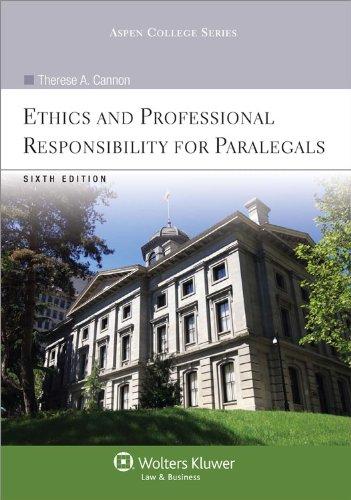The State of Florida appeals from orders issued in separate cases (1) dismissing charges against Scott E.
Question:
The State of Florida appeals from orders issued in separate cases
(1) dismissing charges against Scott E. Foster, Jr., and his wife, Martha J. Foster, purportedly arising from the unauthorized practice of law and
(2) finding [the Florida UPL statute] vague and violative of federal constitutional protections or unconstitutional in its application to the appellees. . . .
Mr. Foster was charged with four counts of unauthorized practice of law for his participation in four depositions by questioning four witnesses in two different cases. . . . [T]he state likewise charged Mrs. Foster for her participation in one deposition by questioning a witness.
The applicable statute provides:
Any person not licensed or otherwise authorized by the Supreme Court of Florida who shall practice law or assume or hold himself out to the public as qualified to practice law in this state, or who willfully pretends to be, or willfully takes or uses any name, title, addition, or description implying that he is qualified, or recognized as qualified, to act as a lawyer in this state, and any person entitled to practice who shall violate any provisions of this chapter shall be guilty of a misdemeanor of the first degree. . . .
Neither of the appellees disputes the fact that each participated in the respective depositions by questioning one or more witnesses. The Fosters are paralegals who own a business that performs paralegal functions.
Neither one is a licensed attorney. . . .
The first issue to be resolved is whether taking a deposition constitutes the practice of law. . . . The Supreme Court of Florida considered an analogous question in Florida Bar v. Riccardi, 304 So. 2d 444 (Fla.
1974). . . . The court held that Mr. Riccardi’s conduct constituted the unauthorized practice of law. . . . [W]e agree that appellee’s questioning of witnesses in depositions likewise constituted the unauthorized practice of law in violation of [the Florida statute].
The second issue is whether the lower courts correctly found the statute to be unconstitutionally vague. . . . The Supreme Court of Arizona has described the practice of law as follows: ‘‘We believe it sufficient to state that those acts, whether performed in court or in the law office, which lawyers customarily have carried on from day to day through the centuries must constitute ‘the practice of law.‘ ’’ [Citation omitted.]
. . . [T]he definition of the practice of law in Florida is not confined to the language of [the statute], but rather is shaped by decisional law and court rules as well as common understanding and practices. . . . The Supreme Court of Florida has defined various acts as constituting the practice of law, including ‘‘appearing in Court or in proceedings which are part of the judicial process,’’ [citation omitted] and, specifically,..........
Questions about the Case 1 What do you think of the language in the Arizona case cited in this case? Does it give notice to the public about what functions fall under the Florida statute?
2 How persuasive is the appellees’ argument that if the court cannot define the practice of law it is necessarily vague?
3 Is a definition in a court opinion sufficient to give notice to nonlawyers who are involved in providing legal services? How might such persons find out about the rule?
4 Did you find the Sperry case formulation of the practice of law useful?
How might you break down the long sentence cited here into more useful components?
Step by Step Answer:

Ethics And Professional Responsibility For Paralegals
ISBN: 272860
6th Edition
Authors: Therese A. Cannon





